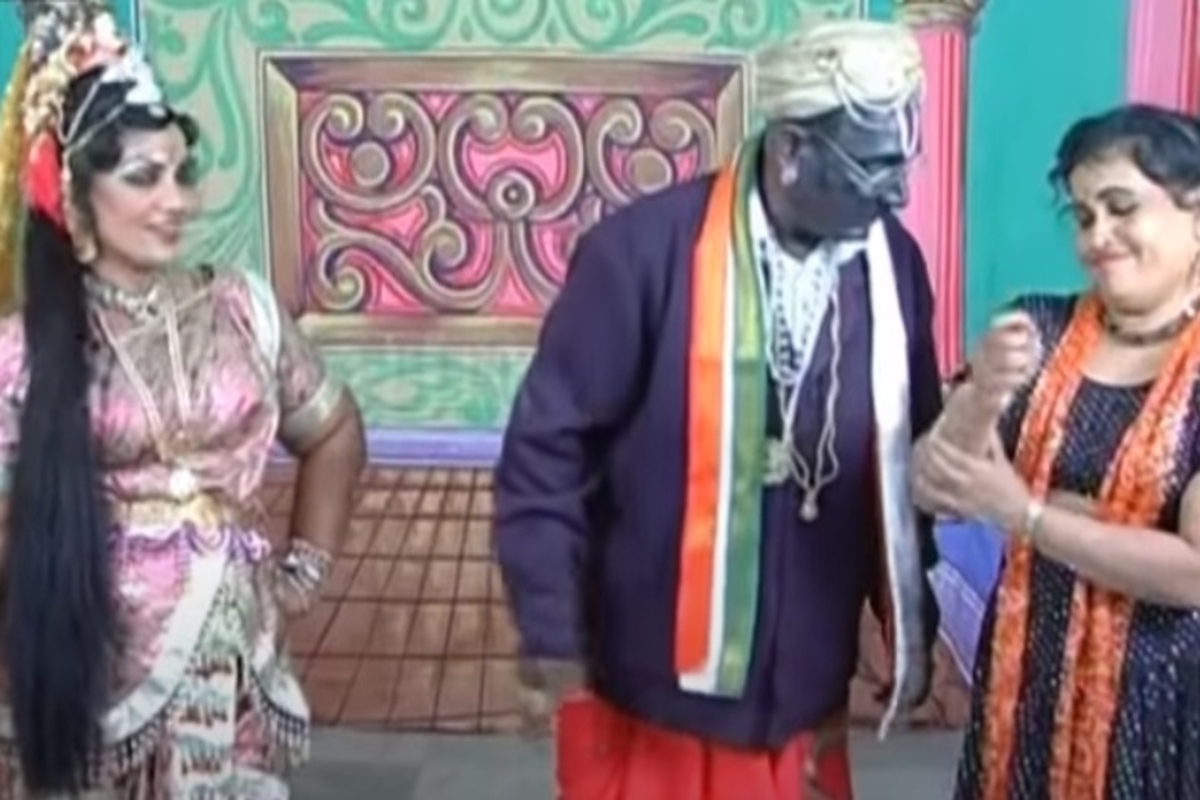The Andhra Pradesh government’s ban on ‘Chintamani’ a Telugu stage play that has been around since 1920, has raised the hackles of the art and culture fraternity in the state. The play scripted by pre-independence era social crusader Kallakuri Narayana Rao that deals with the evils of prostitution, had celebrated its hundredth anniversary only last year.
In normal times, the play is staged regularly all year round at village and temple fairs, and other social events, across Andhra Pradesh. While the play revolves around the central character of Chintamani, a prostitute who attains salvation through repentance, it is the character of Subbi Setti, a Bania or merchant community member who descends to abject poverty, is at the centre of the current controversy.
Advertisement
The state government’s move to ban ‘Chintamani’ had come following representations from the Arya Vysya community in Andhra Pradesh. The Telugu merchant community, known as ‘Banias’ in north India, has long been up in arms against the play in which the character of Subbi Setty is portrayed in extremely poor light.
The ban order was issued on January 17, following the latest attempt by the Arya Vysya community, in the form of a memorandum submitted to the state government about four months ago. According to observers, the fact that Endowments Department Minister Vellampalli Srinivas, who also belongs to the community, helped matters move at a fast pace.
Predictably, the Arya Vysya community is rejoicing over the ban on the play. Community representatives have been expressing their gratitude to the Chief Minister YS Jagan Mohan Reddy.
“The depiction of ‘Subbi Setti’ in the play, is very objectionable and humiliating. Showing him as ugly, and using charcoal as makeup to darken his complexion, and making him the butt of lewd jokes. It was intolerable to the Arya Vysyas” said Ambica Krishna, a leading member of the community, former legislator, and former chairman of the AP Film Development Corporation.
The actual problem however does not lie with the playwright or the original script of ‘Chintamani’.
“The play was written by Kallakuri Narayana Rao garu to highlight the evils of wrong company, in this case, a prostitute. The language used by the author in the original play has nothing objectionable. But over the years, local drama troupes began to modify the situations and language of the play, in a bid to appeal to mass sentiments. It is the fault of these actors and local drama troupes who keep manipulating the script and go overboard penning ribald dialogues as per their whims and fancies to attract more people.” said Golla Narayana, President of the Andhra Arts Academy, cultural organisation that was set up to spread the fervour of independence in British India.
The last few days have seen several art and culture organisations join hands to voice their protest against the ban on ‘Chintamani’. Their argument is that the play is a reflection of the social mores of the prevailing times when it was originally written. The government’s decision to ban the play is being seen as too extreme a step.
“If any part of the play is objectionable, or someone is making changes to it, you can warn such people. But a blanket ban is untenable, especially since the play gives us insights into the social ills of its time” says S Anil Kumar, Secretary, Praja Natya Mandali, Andhra Pradesh unit.
He points out that in 2002, when the community had sought a ban on the play, the High Court had ruled in favour of the play after going through the original script
However, the Arya Vysya community is firm that a blanket ban on staging the play, is the only solution. “It is impossible to monitor the plays which are staged in villages, and even in bylanes of towns and cities. We never know when and where a play is being staged. It will need to be videographed and then followed up, which is impractical to implement. A ban is the ideal solution,” says Ambica Krishna.
Meanwhile, concerns are being raised over the possible precedents that the ban sets for muzzling all kinds of creative expression in the days to come.
“Today the ban is because a community is finding it objectionable. Tomorrow another community might object to another play or it could be that a political party finds fault with a stage play. This decision to ban a play, leaves the door open for future trouble.” said G Narayana.
Considering that the play survived several attempts to get it banned over the years, the urgency with which the Jagan Mohan Reddy-led state government has banned the play by issuing it through the general administration department is raising eyebrows.
Observers opine that the ban may be the ruling party’s ploy to garner favour of the community which though relatively small in numbers, has financial clout.
While clarifying that the Arya Vysyas are well within their rights to protest against the caricaturing of their community, culture champions are finding fault with the state government for the arbitrarily disposing off a very important issue.











